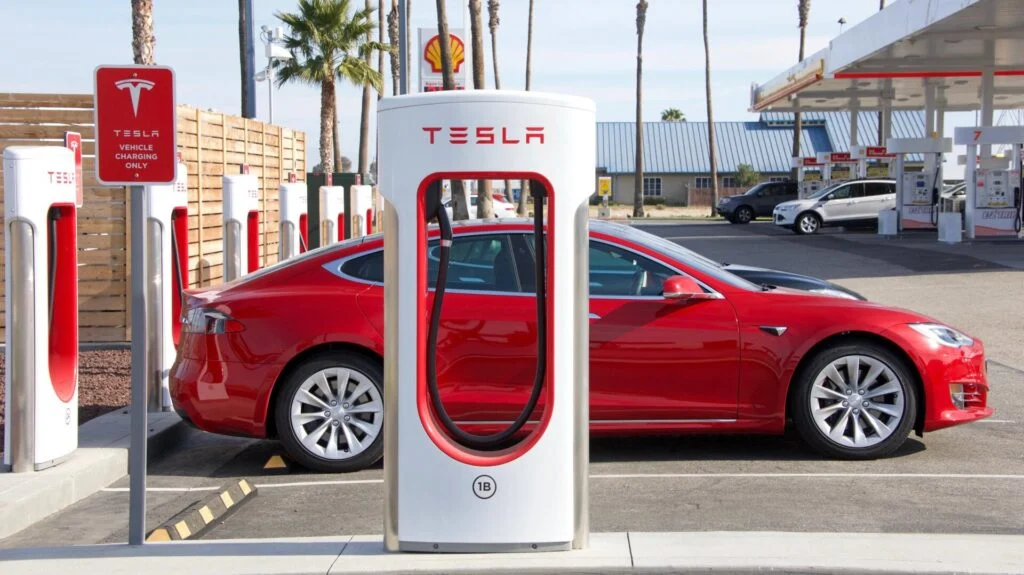Tesla’s (TSLA, Financial) board chair, Robyn Denholm, has confirmed that the company has developed a succession strategy for CEO Elon Musk. During a recent interview, Denholm emphasized that Tesla is prepared for leadership changes when necessary, indicating a proactive approach to future executive transitions.
Tesla Inc, a vertically integrated battery electric vehicle automaker and developer of autonomous driving software, stands as a formidable player in the Consumer Cyclical sector, specifically within the Vehicles & Parts industry. The company boasts a diverse fleet, including luxury and midsize sedans, crossover SUVs, a light truck, and a semi-truck. Tesla’s ambitions extend to more affordable vehicles, a sports car, and a robotaxi service. Additionally, Tesla is a significant player in the energy sector, selling batteries for stationary storage and solar solutions. With a market capitalization of approximately $1.09 trillion, Tesla’s influence in the market is substantial.
Financial Health Analysis
Examining Tesla’s financial health reveals a mixed picture of growth and challenges:
- Revenue Growth: Tesla’s revenue for the trailing twelve months stands at $92.72 billion. However, the company experienced a 3.5% decline in revenue growth over the past year, contrasting with a robust 20.7% growth over three years and 29.6% over five years.
- Profitability: Tesla’s operating margin is 6.23%, with a net margin of 6.54%. The company’s gross margin is 17.48%, indicating a solid ability to manage production costs.
- Balance Sheet Strength: Tesla’s financial strength is underscored by a current ratio of 2.04 and a quick ratio of 1.55, suggesting strong liquidity. The debt-to-equity ratio is a low 0.17, reflecting prudent financial management.
- Warning Signs: The Altman Z-Score of 14.46 indicates strong financial health, yet insider selling activity raises concerns, with four insider selling transactions in the past three months.
Business Performance
Tesla’s business performance is characterized by its innovative approach and market leadership:
- Revenue Trends: Despite a recent decline, Tesla’s long-term revenue growth remains impressive, driven by its expanding vehicle lineup and energy solutions.
- Operational Efficiency: The company’s operating margin expansion is a positive indicator of improving efficiency and cost management.
- Industry Considerations: As a leader in electric vehicles, Tesla benefits from the growing demand for sustainable transportation solutions.
- Competitive Positioning: Tesla’s vertical integration and technological advancements provide a competitive edge in the rapidly evolving automotive industry.
Valuation & Market Sentiment
Tesla’s valuation metrics and market sentiment reflect its position as a high-growth company:
- Valuation Metrics: Tesla’s P/E ratio is 195.74, significantly above historical medians, indicating high market expectations. The P/S ratio is 12.84, and the P/B ratio is 14.12, both reflecting premium valuations.
- Analyst Targets: The target price for Tesla is $299.35, with a recommendation score of 2.7, suggesting a hold position among analysts.
- Technical Indicators: The RSI (14) is 53.96, indicating a neutral market sentiment. Moving averages show the stock trading near its 20-day SMA of 335.78.
- Ownership Activity: Institutional ownership stands at 49.11%, while insider ownership is 3.08%, with recent insider selling activity noted.
Risk Assessment
Assessing Tesla’s risk profile involves several considerations:
- Financial Health Grades: Tesla’s strong financial strength is supported by a robust Altman Z-Score and a low debt-to-equity ratio.
- Sector-Specific Risks: As a cyclical company, Tesla is exposed to economic fluctuations and changes in consumer demand.
- Volatility and Beta: With a beta of 1.54, Tesla’s stock is more volatile than the market, reflecting its growth-oriented nature.
- Upcoming Catalysts: While specific earnings dates are not discussed, Tesla’s ongoing product innovations and market expansion efforts remain key drivers of future performance.
In conclusion, Tesla’s proactive approach to leadership succession, coupled with its strong financial foundation and innovative business model, positions it well for future challenges and opportunities. However, investors should remain vigilant regarding valuation metrics and insider activity as they navigate the dynamic landscape of the electric vehicle industry.
